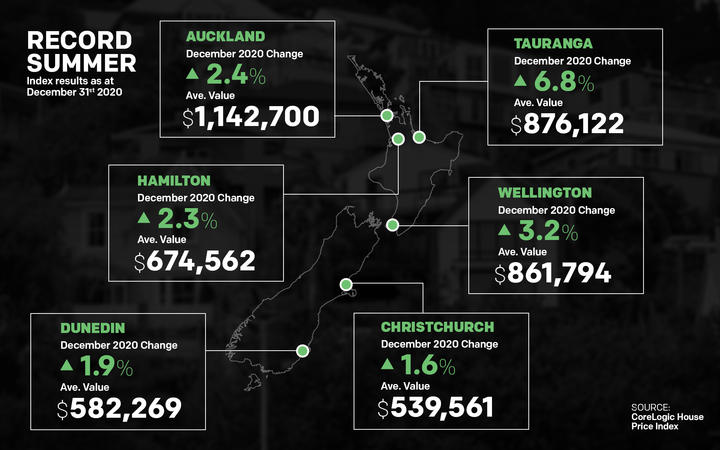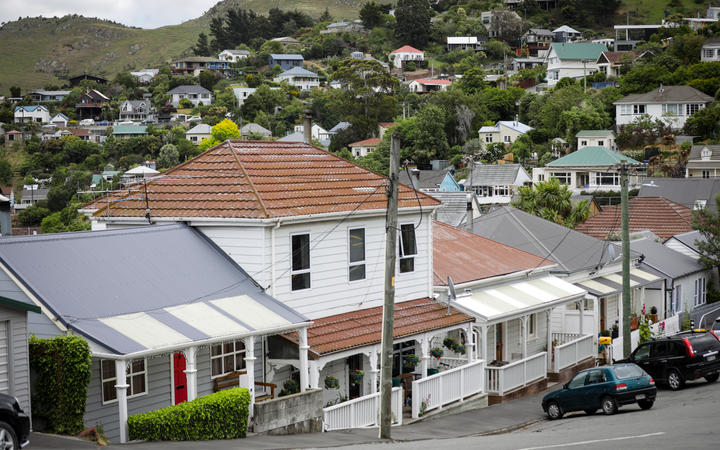House prices grew at a record rate for the second month in a row.
Property research firm Core Logic's house price index rose 2.6 percent in December, with the average house price hitting $788,967.
The rise eclipses November's record, when prices grew at their fastest level in 16 years.
The index was up more than 11.1 percent on a year ago.
Core Logic head of research Nick Goodall said it was being driven by low interest rates, attractive capital gains and tight supply, which were unlikely to ease in the near term.
"It is clear that New Zealanders are looking towards property as a safe investment and the most attractive asset for wealth accumulation."
He said consistent messages from both the government and the Reserve Bank to protect that wealth had reduced the risk associated with property investment, which led to greater demand and higher values.
"Later in 2021 the potential flow on impact of such strong growth will eventually be outright unaffordability reducing the pool of buyers able to borrow enough to participate in the market."

Photo: RNZ / Vinay Ranchhod
Goodall expected this would result in greater political pressure on the government to curb demand.
Loan-to-value ratios will be reinstated by the Reserve Bank (RBNZ) in March but their ability to take the heat out of the market will be limited, Goodall said.
"We may see the restrictions tightened further, potentially requiring property investors to have a 40 percent deposit.
"An extension to the brightline test is a likely possibility and the RBNZ have asked to have the option of including debt to income restrictions in their tool kit for ensuring financial stability so that could happen too."
The brightline test is a tax that is paid on residential property which is purchased and sold within five years. Exceptions to the test include if the property is your main or family home, you inherited the property or if you are the executor of a deceased estate.
House prices by region
Tauranga saw the steepest rise in property values of all the main centres, up 6.8 percent over December to $876,122.
Christchurch saw the slowest growth, up 1.6 percent for the month and 3.4 percent for the quarter to $539,561.
"The success of removing red tape to build houses faster (following the 2010/11 earthquakes) and keeping a lid on long term value growth provides the compelling case to implement similar changes around the rest of the country," Goodall said.
Houses in the Buller District on the West Coast remain the cheapest in the country, with an average price of $227,233.





